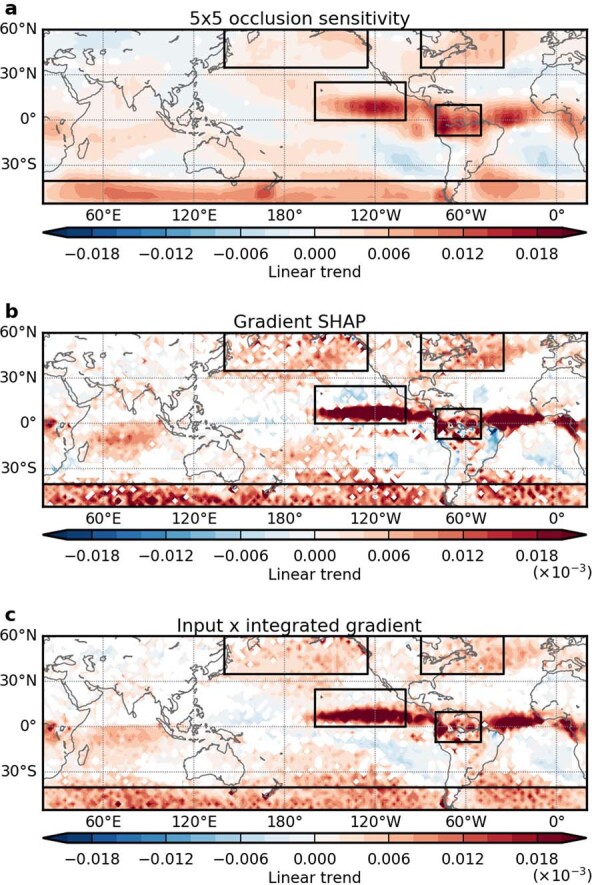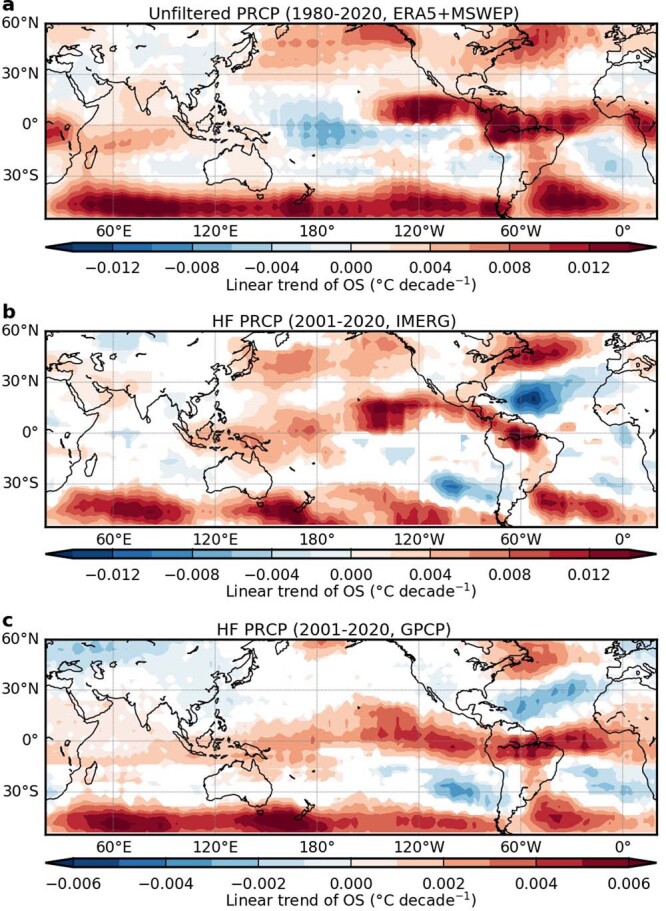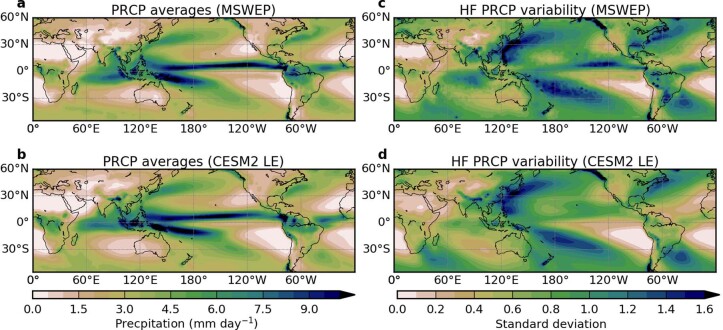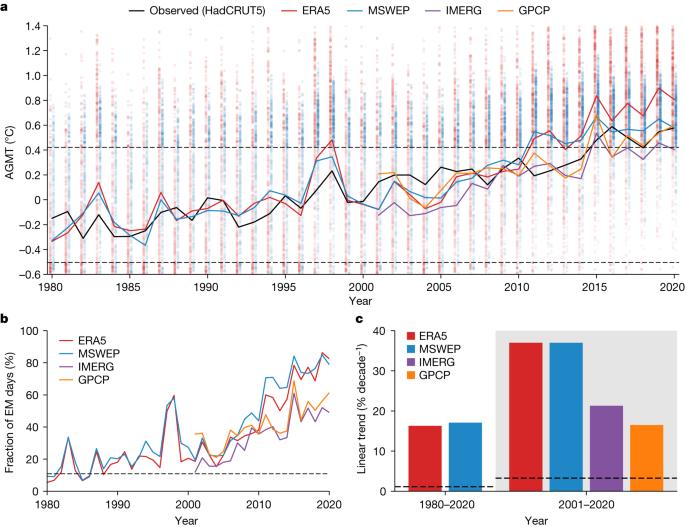Anthropogenic fingerprints in daily precipitation revealed by deep learning
IF 48.5
1区 综合性期刊
Q1 MULTIDISCIPLINARY SCIENCES
引用次数: 0
Abstract
According to twenty-first century climate-model projections, greenhouse warming will intensify rainfall variability and extremes across the globe1–4. However, verifying this prediction using observations has remained a substantial challenge owing to large natural rainfall fluctuations at regional scales3,4. Here we show that deep learning successfully detects the emerging climate-change signals in daily precipitation fields during the observed record. We trained a convolutional neural network (CNN)5 with daily precipitation fields and annual global mean surface air temperature data obtained from an ensemble of present-day and future climate-model simulations6. After applying the algorithm to the observational record, we found that the daily precipitation data represented an excellent predictor for the observed planetary warming, as they showed a clear deviation from natural variability since the mid-2010s. Furthermore, we analysed the deep-learning model with an explainable framework and observed that the precipitation variability of the weather timescale (period less than 10 days) over the tropical eastern Pacific and mid-latitude storm-track regions was most sensitive to anthropogenic warming. Our results highlight that, although the long-term shifts in annual mean precipitation remain indiscernible from the natural background variability, the impact of global warming on daily hydrological fluctuations has already emerged. Deep learning using a convolutional neural network trained with daily precipitation fields and annual global mean surface air temperature data demonstrates that anthropogenically induced climate change has a detectable effect on daily hydrological fluctuations.




深度学习揭示的日常降水中的人为指纹。
根据21世纪气候模型的预测,温室气体变暖将加剧全球降雨量的可变性和极端情况1-4。然而,由于区域范围内的自然降雨波动较大,使用观测来验证这一预测仍然是一个巨大的挑战3,4。在这里,我们展示了深度学习在观测记录期间成功地检测到了每日降水场中出现的气候变化信号。我们训练了一个卷积神经网络(CNN)5,该网络使用从当前和未来气候模型模拟集合中获得的每日降水场和年度全球平均地表气温数据6。在将该算法应用于观测记录后,我们发现,每日降水量数据是观测到的行星变暖的一个很好的预测指标,因为自2010年代中期以来,它们显示出与自然变化的明显偏差。此外,我们用一个可解释的框架分析了深度学习模型,并观察到天气时间尺度(周期小于10 热带东太平洋和中纬度风暴路径区域上空的温度(天)对人为变暖最为敏感。我们的研究结果强调,尽管年平均降水量的长期变化与自然背景变化仍然无法区分,但全球变暖对每日水文波动的影响已经显现。
本文章由计算机程序翻译,如有差异,请以英文原文为准。
求助全文
约1分钟内获得全文
求助全文
来源期刊

Nature
综合性期刊-综合性期刊
CiteScore
90.00
自引率
1.20%
发文量
3652
审稿时长
3 months
期刊介绍:
Nature is a prestigious international journal that publishes peer-reviewed research in various scientific and technological fields. The selection of articles is based on criteria such as originality, importance, interdisciplinary relevance, timeliness, accessibility, elegance, and surprising conclusions. In addition to showcasing significant scientific advances, Nature delivers rapid, authoritative, insightful news, and interpretation of current and upcoming trends impacting science, scientists, and the broader public. The journal serves a dual purpose: firstly, to promptly share noteworthy scientific advances and foster discussions among scientists, and secondly, to ensure the swift dissemination of scientific results globally, emphasizing their significance for knowledge, culture, and daily life.
 求助内容:
求助内容: 应助结果提醒方式:
应助结果提醒方式:


